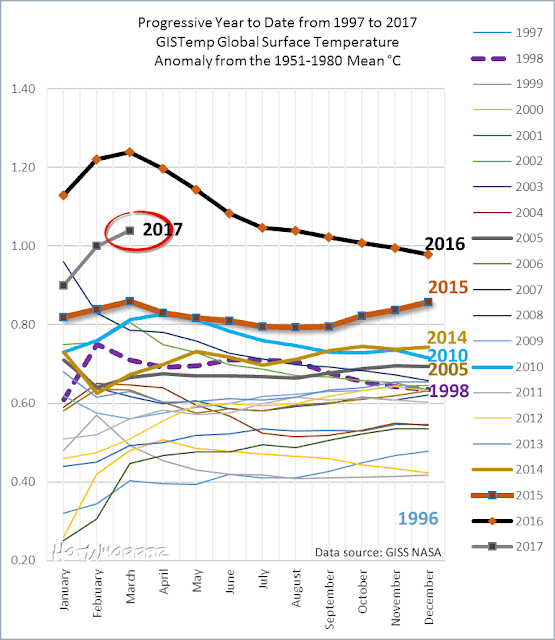- Joined
- Mar 31, 2013
- Messages
- 67,315
- Reaction score
- 34,009
- Gender
- Male
- Political Leaning
- Undisclosed
Remember when the deniers told us that 2016 was just an El Nino anomaly (and one especially deluded one thinks we should exclude it from the record because it was weather, not climate?)?
Well, the GISS data for March is in and its offical - March 2017 is only second to March 2017 as the warmest March ever.

This, of course, jives exactly with the models that have been published since the 1980s that predicted that we would be experiencing the warmest recorded climate in history. The models were right, we are.
And the things the climate models predicted are becoming realized. Low sea ice at the poles, melting glaciers, tremendous Greenland melt, shifting growing zones and ecological disruption, and an increase in extreme weather.
Remember when everyone thought that receding Artcic ice was just a made up story? Heres what sea ice looks like at the end of March each year. See a trend?

Well, the GISS data for March is in and its offical - March 2017 is only second to March 2017 as the warmest March ever.

This, of course, jives exactly with the models that have been published since the 1980s that predicted that we would be experiencing the warmest recorded climate in history. The models were right, we are.
And the things the climate models predicted are becoming realized. Low sea ice at the poles, melting glaciers, tremendous Greenland melt, shifting growing zones and ecological disruption, and an increase in extreme weather.
Remember when everyone thought that receding Artcic ice was just a made up story? Heres what sea ice looks like at the end of March each year. See a trend?
